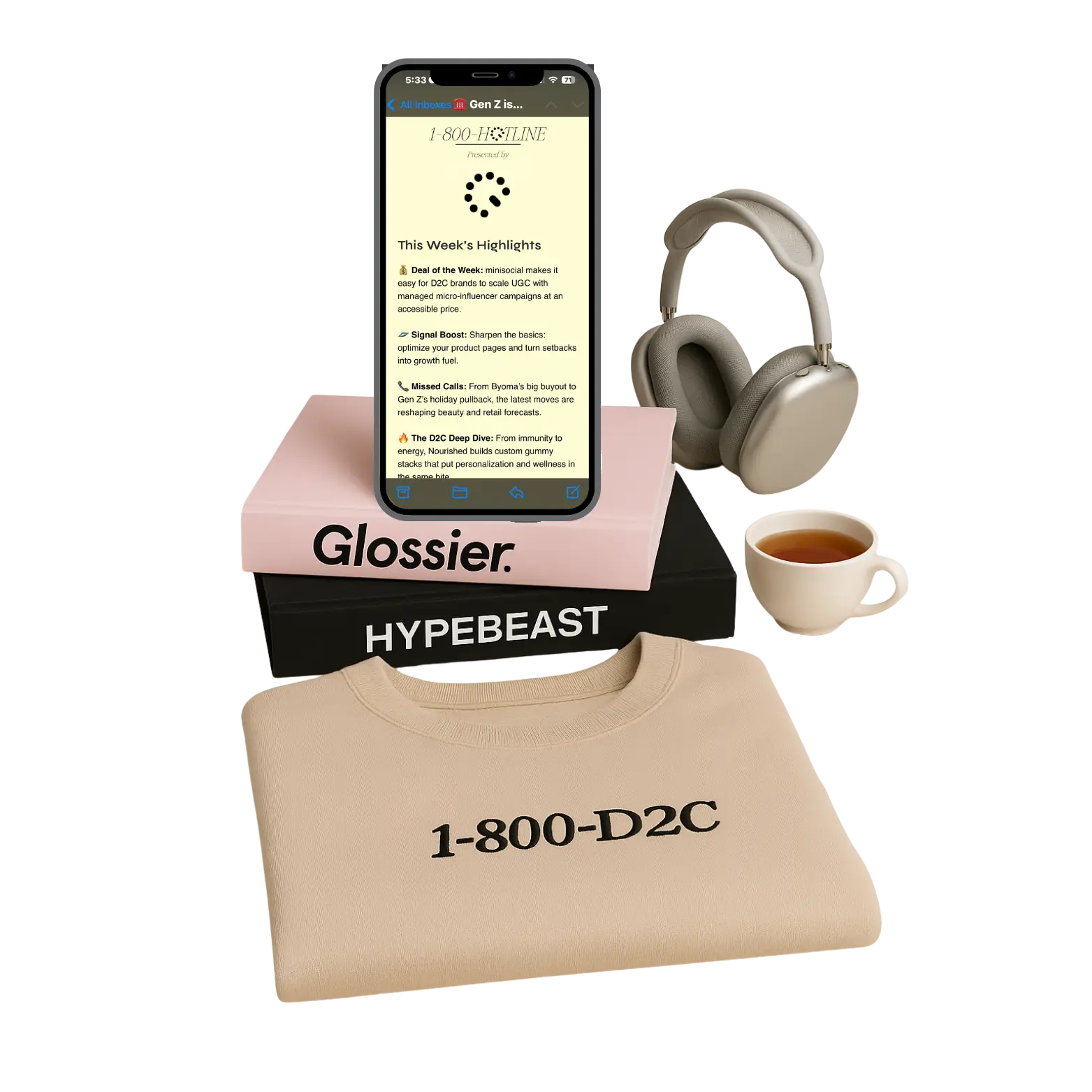
I had an insightful chat with Caleb Polley recently — he’s the founder of Cubby Beds, a DTC brand that makes smart, sensory-friendly beds to improve anxiety, sleep, and safety for people with cognitive conditions and special needs.
What’s so interesting is that Cubby Beds leverages DTC to drive demand in medical distributors/wholesalers and insurance network channels — the opposite of how these FDA-registered products have scaled in the past. Creating impactful DTC brands offering FDA-registered medical products is a huge whitespace in our world. Typically, you start in the insurance network or medical distributor channel and hope to drive enough demand to eventually launch a successful DTC channel.
Cubby is well into the 8-figures of revenue and has used their powerful community of customers and advocates (acquired through DTC channels) to drive adoption across 700+ medical distributors across the US. You can imagine how fast the growth starts to compound for Cubby when a handful of passionate customers turns into a handful of medical distributors or insurance networks that treat thousands of customers.
Cubby is also another great example of a DTC brand building their wedge through an innovative and disruptive product to become a much bigger platform play. A customer to Cubby can be worth thousands - if not tens of thousands - in LTV and Caleb noted that their long term play is to create a huge platform to serve their customers across every need they might have.
It’s similar to DTC brands scaling a single SKU beyond 9-figures in revenue and then rapidly expanding into new categories to grow LTV and new acquisition opportunities — except Caleb is going more towards the platform, tech-enabled play with Cubby which is rare in DTC.
Here's the interview - enjoy!
Cubby makes smart, sensory-friendly beds designed to improve anxiety, sleep, and safety for people with cognitive conditions and special needs.
We serve families facing a wide variety of conditions, but the most common are autism, epilepsy, cerebral palsy, and Down syndrome. We recently had our first dementia patient approved, as well. These beds provide safety through padding, remote monitoring with sensors and cameras, and then improve the environment to create a more soothing sensory experience with lights, sound, vibration and aromatherapy.
This journey started over a decade ago. I had an idea about creating a room within a room for environments that are difficult to sleep in such as homeless shelters, dorms, and disaster relief areas. Fast forward several years, I came across enclosed beds for people with special needs. I grew up with a very close family friend with Down syndrome, and I knew how his troubles with sleep had affected the whole family so I was really excited to explore how I could help. I saw that there was a real need in the space for not only a better looking enclosed bed, but one that addressed other symptoms of these types of cognitive issues, like sensory sensitivity.

Cubby is an FDA-registered medical device and instead of employing a traditional, enterprise top-down sales model, we took a very different approach by going directly to the consumer. For example, the engagement on our social ads is wild. We are one of the only brands I've ever seen to consistently get more shares on our ads than we do likes, which just shows the strength of this community and how many people are sharing and posting.
As we grew, we received a lot of consumer interest, but we still didn't know how to get insurance to cover this or how to get a prescription. So we approached the families and asked for their help. They went and told all their doctors and therapists who saw the benefit for their patients and wrote prescriptions. Those prescriptions were then sent to what are now over 700 medical distributor locations around the U.S. who sell our products. Most of our customers bill their insurance companies for the bed which means they pay little to nothing out of pocket.
The other event that played a part of our early days was COVID-19. We launched the business in early 2020 and had sold a few beds before our factories got shut down for months. Simultaneously, families were facing unique challenges because everyone was at home and the child with severe special needs or disabilities couldn’t attend school or therapy. There was a real need to have a safe place with monitoring and a soothing environment. As a company, we experienced crazy demand very quickly once people discovered the immediate impact of our product.

Right now we are selling thousands of beds a year and shipping to all 50 states. We’re profitable, which is really good for a mission-driven company. We’re able to control our destiny and sustainably scale our growth.
In the next two to four years, we plan to scale our Cubby Care Journey, which is a highly personalized process led by an inside sales team, encouraging consumers to go get a prescription, talk to your doctor and work with insurance.
We're also evaluating how chatGPT or AI can create and track medical documentation in a more efficient way. Plus, we want to build on the strong community we serve with an owned, moderated Facebook group, where our customers can meet, help and support one another. Ultimately, we want to deliver the right messages at the right time to the right people.
We are built on Shopify. We use Affirm for financing, JudgeMe for reviews and Privy for pop ups.
We also leverage smaller apps for bundling, upsells, sales tax automation and more. While we lean into a typical D2C tech stack, we are HIPAA compliant with Salesforce and Front so that we can transact with people's healthcare information. To do that, we unfortunately had to move off of some of my favorite tools, like Klaviyo.
Our goal is to create a proactive approach to helping people through the purchasing process. It’s a win when a sales rep or member of our customer experience team calls a potential customer, and they already know the child’s name, diagnosis, age and location. It makes the conversation more productive and personalized, which is what we are all about.
Discover new D2C brands, new eCommerce tools and read in-depth founder reviews each week.
